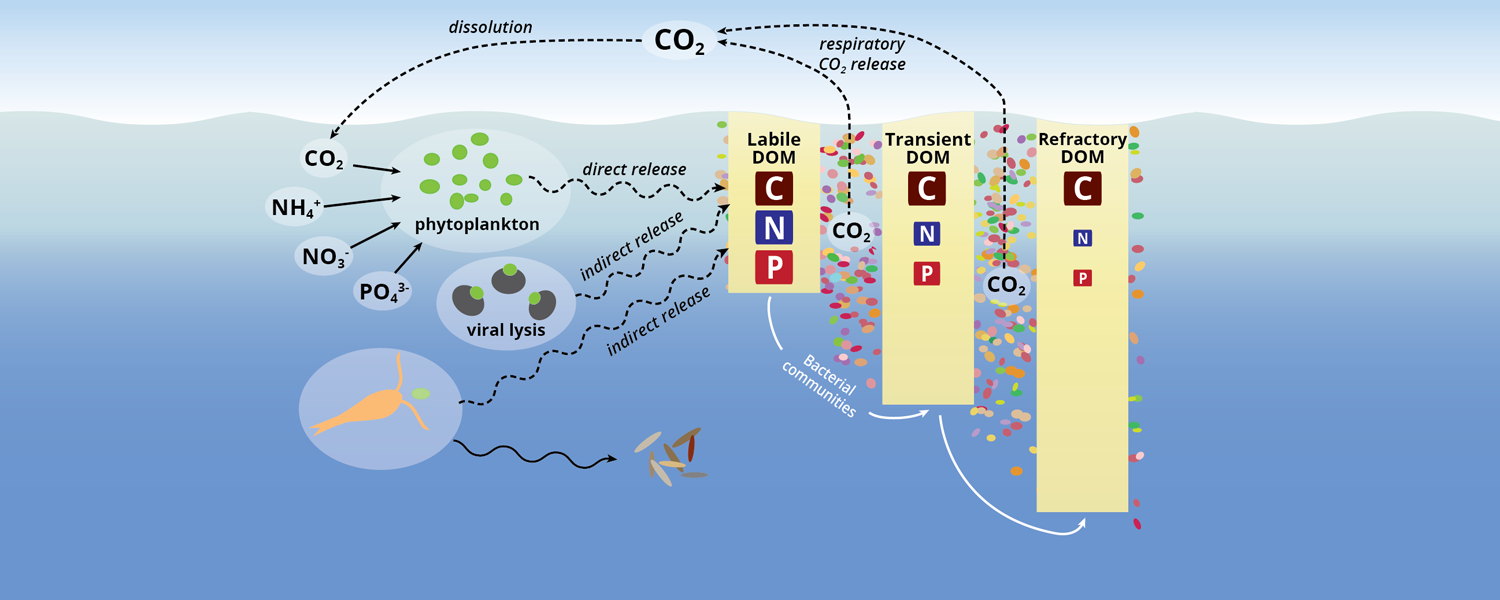Project
Microbial carbon pump in a changing ocean: building models for the future

Completed project
Project start: June 2018 | Project end: May 2022Funder: NERC
Principal Investigator: Dr Luca Polimene
Other participants from PML: Dr Darren Clark, Dr Susan Kimmance, Lisa Al-Moosawi
Website: http://www.mc-pump.org
This project will conduct laboratory experiments to provide the physiological information and understanding needed to develop the first ever model describing the microbial carbon pump (MCP) and its relationship with nutrient concentrations and temperature. This will be the first critical step towards the simulation of the MCP in present and future oceans. To achieve this ambitious goal, the project will bring together a multidisciplinary team of internationally recognised scientists, from chemical analysts to system biology and ecosystem modellers.
The main objectives of the research are:
- To understand the effects of nutrients and temperature on the microbial production of long lasting dissolved organic carbon (the MCP).
- To develop the first model formulation describing MCP functioning under changing temperature and nutrient conditions.
- To understand how the interactions between bacteria and grazers affect the production of refractory dissolved organic matter.
- To implement the new model formulation into the European Regional Seas Ecosystem Model (ERSEM) and make it publically available for both the national and international scientific community.
Impact
The main impact of this project is the delivery of a robust, physiologically based, model formulation describing MCP dynamics. This formulation will be embedded in the European Regional Seas Ecosystem Model (ERSEM) significantly improving the capability of this model to simulate the extant ocean carbon cycle and to reliably test future scenarios hypotheses. Indeed, this project will provide the wherewithal to enable an explicit description of one of the largest pools of carbon on Earth, a pool hitherto considered in steady-state and thus ignored. The new version of ERSEM will thus be a valuable tool to provide evidence-based policy advice on marine climate change which is increasingly required by EU governments.